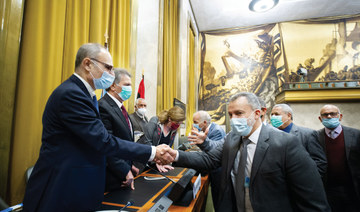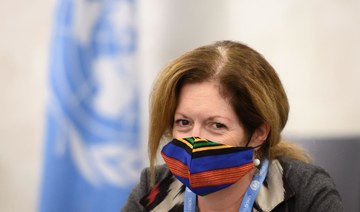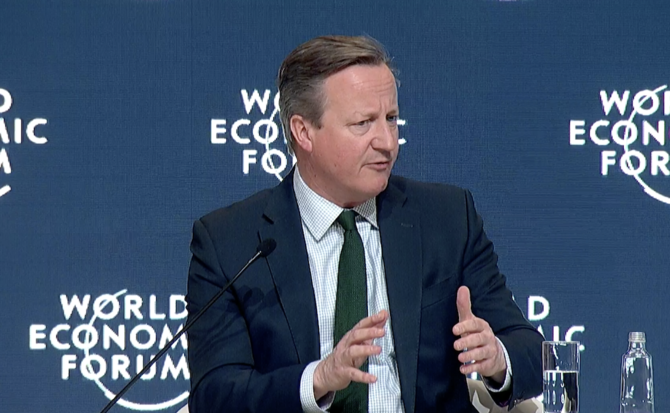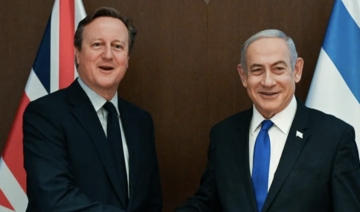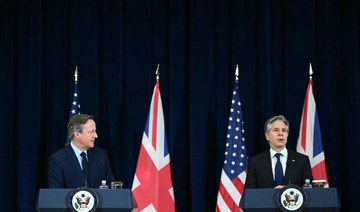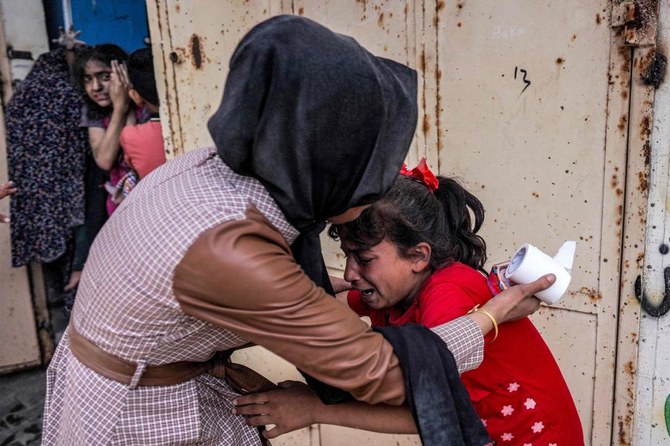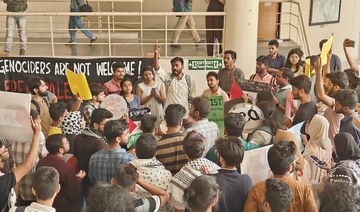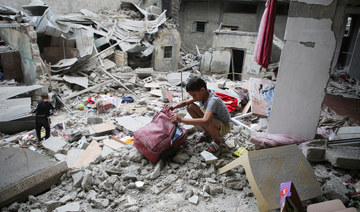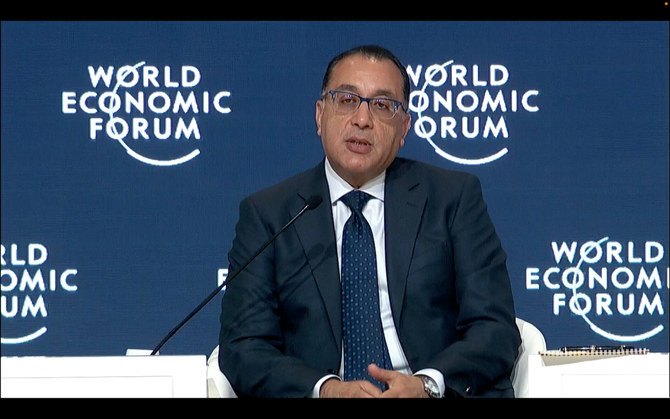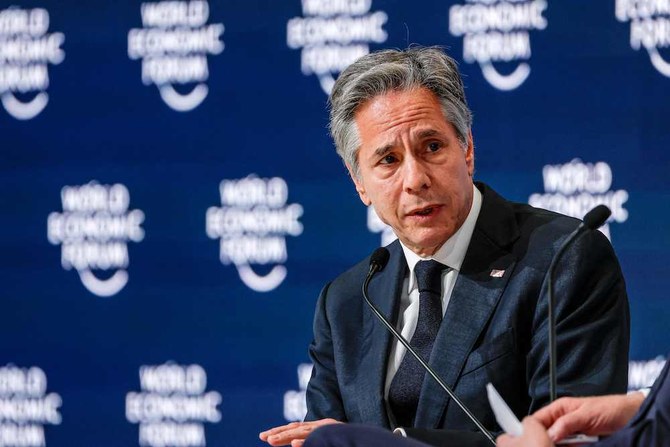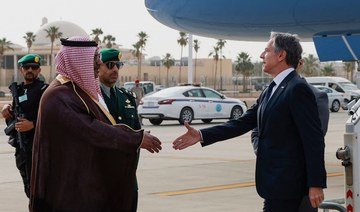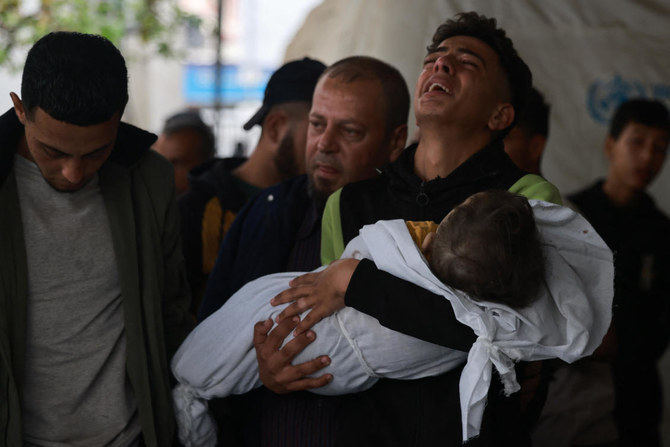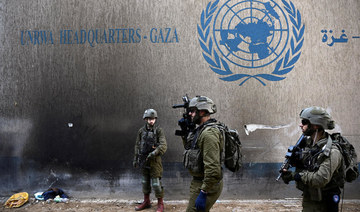TRIPOLI: Libyans have reacted with a mix of hope and skepticism after the signing of a nationwide cease-fire deal intended to pave the way toward a political solution to the country’s grinding conflict.
While observers have welcomed the UN-backed deal, few are under any illusions about the difficulties of turning it into lasting peace on the ground.
“We’ve seen a lot of deals in the past,” said Hassan Mahmud Al-Obeydi, a 40-year-old secondary school teacher from the eastern city of Benghazi.
“What’s important is the implementation.”
Friday’s deal was signed in Geneva by military delegates from the two main warring parties in the North African country, which plunged into violence in 2011 with the NATO-backed revolt that toppled veteran ruler Muammar Qaddafi.
The Tripoli-based unity government and rival forces led by eastern military commander Khalifa Haftar agreed to withdraw from front lines, start demobilizing armed groups and set about integrating them into the state.
Crucially, the deal also calls for the departure of all foreign forces from Libyan soil within three months.
“It’s good that the two sides have been prepared to compromise, but the devil is in the detail,” said Peter Millett, a former British ambassador to Libya.
“There are an awful lot of questions. A key one is: Will countries that have been sponsors of military forces in Libya support this compromise?”
Both major camps in Libya’s complex war have received extensive backing from foreign powers.
Friday’s deal comes four months after Haftar forces gave up their year-long attempt to seize the capital Tripoli, a battle that killed hundreds of people and displaced tens of thousands.
In June, Haftar withdrew from western Libya in the face of a blistering counterattack by forces supporting the Government of National Accord (GNA) — backed by Turkey.
HIGHLIGHT
While observers have welcomed the UN-backed deal, few are under any illusions about the difficulties of turning it into lasting peace on the ground.
The battle had further deepened the bitter mistrust between the rival political camps and their military allies, as well as ordinary Libyans.
“The war caused terrible social divisions,” said Obeydi. “Work is needed immediately, right now, to rebuild and to heal the deep wounds in Libyan society.”
In the capital Tripoli a 1,000-km drive west, pro-GNA fighter Salim Atouch voiced doubts the cease-fire would hold.
“We have experience with a previous agreement, which was five days before Haftar’s attack on Tripoli, during which he destroyed the capital’s infrastructure and killed many people,” Atouch said.
“I hope this won’t be like previous agreements, meaning we go back to war again. We will abide by it, but we are ready to react at any moment if it’s violated.”
The Geneva talks were the military part of a process led by the UN’s Libya mission UNSMIL.
Separate political talks that start Monday aim to create a new governing body and prepare for elections.
Mohamed Dorda, co-founder and consulting director of geopolitical risk consultancy Libya Desk, said the cease-fire was a positive step that “creates a basis for the political talks.”
But, he warned, “Libya needs a security arrangement to allow a government to be set up. If we don’t deal with the security crisis, we will find ourselves in same situation in a few years.”
That is a complex challenge in a country prey to a patchwork of rival militias as well as foreign mercenaries and rebel groups.
Observers have warned that those negotiating in Geneva do not necessarily control their armed allies on the ground.
Nor are foreign players in Libya likely to easily give up their hard-won influence.
Emadeddin Badi, a senior fellow at the Atlantic Council think tank, warned that Russia and Turkey would want economic dividends from their military interventions.
“It’s naive to get them to just leave,” he said. “The best case scenario is that they win economic concessions and limit their presence on the ground. The worst is that fighting resumes.”
Yet despite all the obstacles, recent days have seen tangible progress.
This week, the two camps agreed to open domestic transport links and boost Libya’s vital oil output, hard hit by fighting and blockades. Key oil installations have already restarted production after months-long shutdowns.
Massoud Al-Fotmani, a 57-year-old from Benghazi who runs a group of food stores, said he hoped the cease-fire would hold.
“The war has caused a terrible economic downturn,” he said. “We’ve lost a lot of money because of the cutting of commercial ties between east and west due to the roads being closed.”
English teacher Mayssoon Khalifa, who works at a private school in Tripoli, echoed his call for a lasting peace.
“Many are hopeful, but not optimistic,” she said. “I sincerely wish that this deal will hold. Libya deserves better.”




